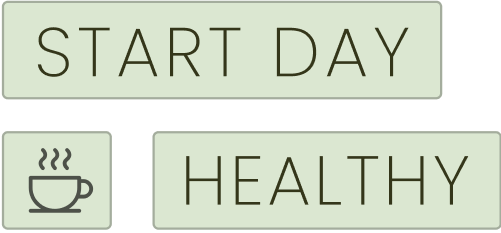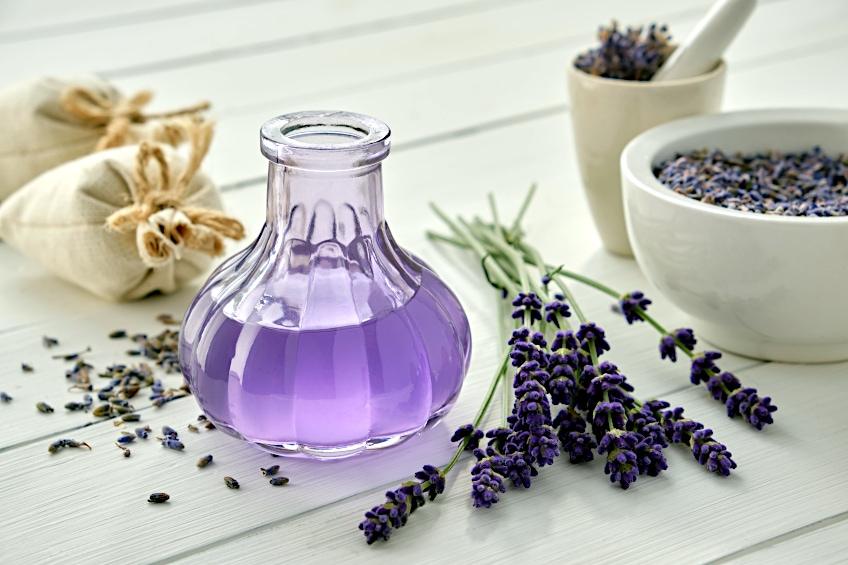Many people worldwide simply love the unique scent of lavender, but can you drink lavender tea? Absolutely! In fact, it makes a wonderfully tasty brew with all of the lavender tea benefits included. What is lavender tea good for though, and are there any negative lavender tea side effects that I should be aware of? Let us discover the answer to these questions, as well as learn how to make your own cuppa to experience the fantastic lavender tea benefits for yourself.
Can You Drink Lavender Tea?
Throughout history, lavender has been a popular choice for use in a large range of applications, ranging from its addition to food, essential oils, and even beauty products. As we will discover today, it is also used as a tea with many health benefits.
Lavender tea is made from the buds of the lavender flower, a plant that can be found in abundance in regions that have Mediterranean climates.
For hundreds of years, lavender has been utilized for healing therapies such as aromatherapy, as it has proven to be useful for pain relief, lessening anxiety, and helping to calm people down in stressful times. During the Middle Ages, chamomile was more commonly used for making relaxing teas, but lavender was still a prominently used herb for other medicinal applications.
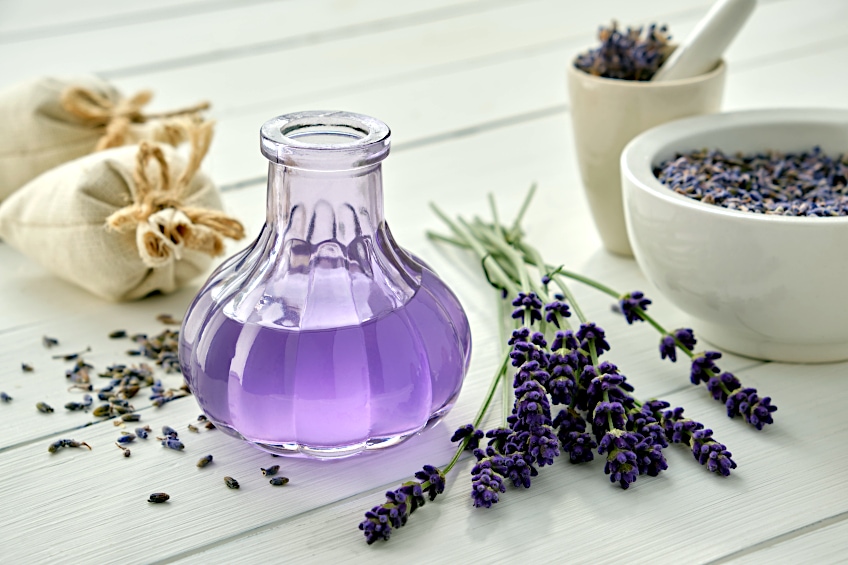
Not only are there many lavender tea benefits for your health, but it is also very tasty, offering a sweet fragrance with notes of apple, mint, and rosemary. It is often added to other tea blends to complement the various herbal flavors present, or to serve as an ingredient in a combination of herbs created to relax or calm someone down. However, it can also be consumed on its own, without adding any additional herbs.
Although many people associate the lavender plant with France, it can be found in abundance all across Europe, as well as other continents too. In fact, there are around 40 various kinds of species of lavender, but not all of them are safe to ingest.
What Is Lavender Good For?
It is rather incredible that nature can provide so many healing plants to help us deal with our daily ailments, and lavender is definitely no exception. Lavender tea’s benefits are said to include the reduction of pain and inflammation, the promotion of deeper sleep, and calming down people experiencing extreme anxiety. There are several other benefits of lavender tea, so let us take a more in-depth look at what lavender can do for you.

Get a Better Night’s Rest
Drinking a cup of lavender tea before going to bed can help alleviate the stress you have accumulated throughout the day. Used to treat a range of sleeping disorders, lavender tea causes a chemical response from your nervous system that aids in calming brain activity. Research has indicated that if mothers drink lavender tea after childbirth, they get proper sleep and are less likely to experience postpartum depression. It has been found to be most effective if used for between four and eight weeks after childbirth.
Many teas on the market claim to have anti-anxiety properties, but time has proven that lavender is one of the most effective and reliable herbs to use for stress release.

Help Relieve Menstrual Pain
Many women suffer from the pain and discomfort of period pains, without knowing that there is a safe and natural way to combat their monthly woes. Lavender is known to reduce muscle spasms, relax the body, and reduce inflammation – which is specifically helpful in dealing with menstrual pain. Tests involving people who drank lavender during the first couple of days of their cycle found that they experienced significantly less discomfort than those in the control group who didn’t.
If you want to try it for yourself, it is recommended to drink as well as inhale the scent for about 30 minutes every day.

Prevent Infections
Lavender is renowned for being exceptionally good for your skin, hence why it is such a common ingredient in so many products designed for skin care. Two beneficial properties you want in a skin cleaning product are anti-fungal and anti-inflammatory properties, which are both abundant in lavender.
In fact, if you look at many products designed for conditions such as psoriasis, acne, and sensitive skin, you will notice lavender featuring among the listed ingredients.
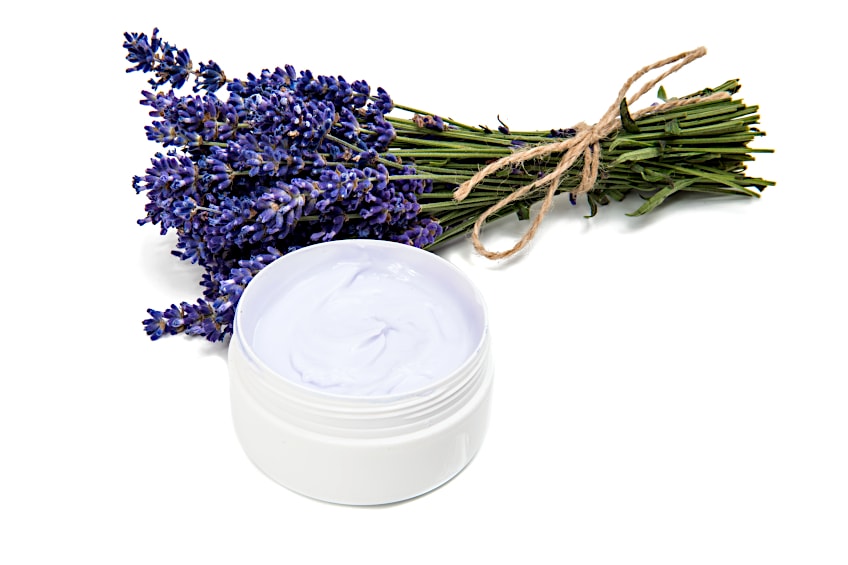
Bring Balance to Your Immune System
In today’s fast-paced society it is very easy for one’s immune system to take a knock from built-up stress, pollutants, and an unhealthy diet, leaving us feeling tired and drained. Therefore, we find an overabundance of remedies and teas that promise to provide energy and remove toxins from our bodies. Some of them are rather dubious, but lavender is a tried and tested herb that can guarantee proper immune system support. What is lavender good for when it concerns your immune system?
Well, it contains magnesium, Vitamin C, calcium, and many other essential nutrients that assist in keeping infections at bay.

Support Your Digestive System
One of the significant lavender tea benefits is that it promotes a healthy gut. Drinking lavender tea can assist with an upset stomach, cramps, and bloating, as well as act as an antispasmodic agent. Not only that, but smelling lavender can also cause your body to break down food and stimulate the production of bile. It simultaneously brings relief to your digestive system and mind, allowing the mental stress of being in pain to dissolve along with the actual physical pain.
So, if your stomach is causing you issues at home or work, simply reach for a hot cup of lavender to help see you through your day.

Improve Your Anxiety
One of the most well-known benefits of lavender tea is its ability to help combat anxiety. Lavender is highly appreciated for its ability to restore a sense of calm and well-being in people who regularly suffer from bouts of crippling anxiety. It has proven over the years to be very effective at relieving the anxiety and stress of those who drink or even just smell it. The olfactory gland is a powerful thing that links scent to memories and certain feelings, and it seems that lavender universally brings people a sense of peaceful calm.
This is because lavender stimulates the production of chemicals in the parts of the brain that control our moods and these chemicals then flow through our bodies, bringing with them the necessary feel-good hormones.

Heal Your Wounds
Lavender has also proven to be effective in dealing with wounds such as burns, cuts, and other blemishes of the skin. This is due to the ability of lavender to stimulate the production of collagen, which in turn is used to help speed up the recovery process by providing the necessary chemical building blocks to heal a wound or form a scar.
Drinking lavender tea as well as applying lavender oil topically for 14 days has been shown to significantly reduce and heal wounds.

Stimulate Hair Growth
Another common consequence of our hectic modern lives is unwanted hair loss. This could be the result of stress or even just damage accumulated from not having enough time to look after your hair properly. Either way, recent studies have indicated that lavender can go a long way to helping prevent further hair loss. The success researchers have so far witnessed in trials with animals strongly suggests that it could be beneficial for humans who suffer hair loss as well.
You really don’t have anything to lose by trying it, so consider brewing a hot cup next time you feel like you are shedding more than a husky.

Relieve Your Migraines and Body Pains Naturally
Not only does lavender assist with inflammation, but it also assists in reducing aches and pains such as backaches and headaches. Although the most effective way to use lavender can sometimes be in the form of a topical essential oil, drinking lavender tea can provide the same benefits.
Many tests across the world have proven lavender’s efficacy in this regard.

Lavender Tea Side Effects
Despite lavender being purely natural with no added chemicals, there are still people who might experience negative side effects if they ingest it. Studies have proven that the use of lavender can cause a change in hormone levels, which could potentially affect pregnant women as well as boys going through puberty, as these are both examples of periods of hormonal instability. For example, the growth of breast tissue was discovered in young boys who regularly drank lavender tea. However, it was also noted that this change was not permanent and that hormonal levels and tissue returned to normal upon cutting out the tea from their diets.
Lavender mimics estrogen, so it is recommended that expecting mothers rather consult with their doctors before adding it to their diet. Other people who should steer clear of lavender are those who experience any sort of allergic reaction upon contact or ingestion.
Making Your Own Lavender Tea
Now that you are aware of all the wonderful lavender tea benefits, you are most likely keen to brew a cup yourself. Although you can go and pick from a wide range of pre-made teas from a store, you can also make your own lavender tea by using the lavender buds from your garden. With this recipe, you can use either freshly picked or dried lavender buds, both will offer a great taste and healthy benefits.
All you will require is a cup of water, a tea infuser, and two tablespoons heaped with dried lavender, or a few choice fresh buds.
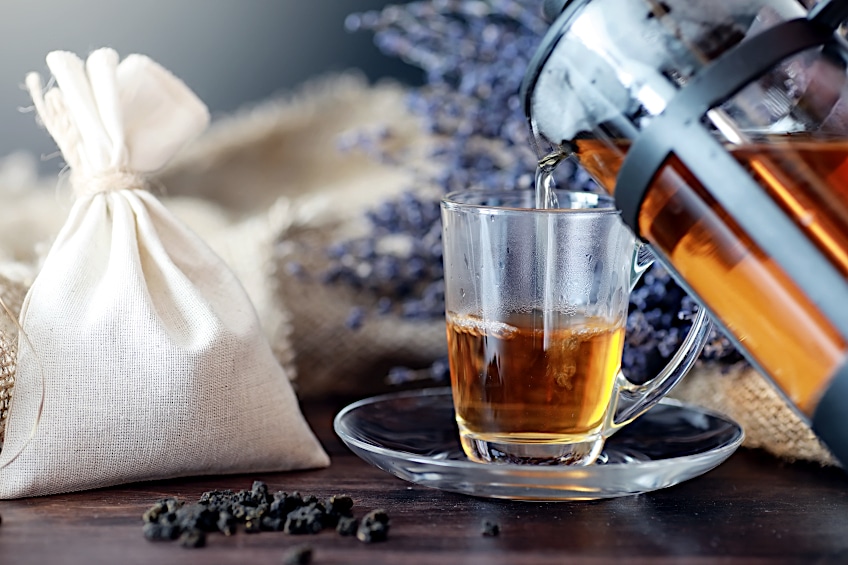
- First, put your previously-dried lavender in the tea strainer, and place it in a mug
- Boil some water and pour it over the infuser, filling the cup, then allow it to steep for between five and ten minutes.
- Remove the strainer and if you would like, add some peppermint tea drops to add a complementary flavor to your tasty lavender brew.
No matter what is causing you to feel anxious or physically uncomfortable, lavender tea can help to bring you relief from pain and stress in a multitude of helpful ways. These lavender tea benefits include the swift healing of wounds, and relief from menstrual cramps, stomach issues, and skin problems. Over many centuries, humans have discovered that lavender is both a sweet-scented and delicious beverage, as well as an all-around helpful herbal tool in your medicinal cabinet or shelf. Just make sure to check that you are not one of the groups who should steer clear of lavender tea, such as boys going through puberty, or women who are expecting a baby.
Frequently Asked Questions
What Is Lavender Tea Good For?
Through many years of research and personal use, we have learned that lavender can be used for a wide range of ailments. Lavender tea has been shown to help with everything from hair loss to healing burns and wounds. It can be used as a tea as well as a topical ointment and is safe for most people to use, however, if you are unsure, always check with your doctor first.
Can You Drink Lavender Tea?
Lavender tea can be incorporated into your life in many ways, from its use in skin care products to ointments. Another popular way to introduce lavender into your health regime is by making lavender tea. It is perfectly safe for most individuals and is a delectable way to consume lavender and enjoy its benefits. You can enjoy it on its own or blend it with other herbs to create a more complex flavor.
What Are the Lavender Tea Side Effects?
Lavender tea is non-toxic and most people can safely enjoy its benefits. There are a few periods in life when it is not suitable to consume lavender though. For example, if you are a pregnant woman or a boy going through your puberty stage. It has been found that lavender can mimic estrogen, resulting in an imbalance in hormonal levels inside your body. The result of this imbalance can often be a noticeable increase in the tissue of the male breast area, but this can be reversed by simply cutting out lavender completely.
How Do I Make Lavender Tea?
Making your own lavender tea is very simple, especially if you have ever brewed any other kind of herbal tea, the same basic principles always apply. You can use either fresh lavender buds picked from your garden, or you can easily acquire some at most local tea or grocery stores. Just add a couple of tablespoons to a strainer, and then place the strainer in your mug and add boiled water. Once it has cooled down a little and absorbed all those delicious lavender flavors, you can remove the strainer from your mug and enjoy!
The post Lavender Tea Benefits – More Than Just a Pretty Flower appeared first on Natural Herbal Living.
